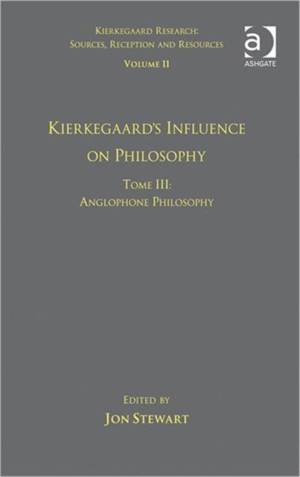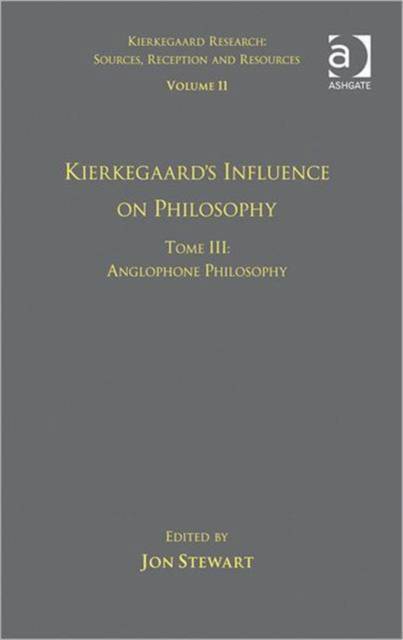
- Afhalen na 1 uur in een winkel met voorraad
- Gratis thuislevering in België vanaf € 30
- Ruim aanbod met 7 miljoen producten
- Afhalen na 1 uur in een winkel met voorraad
- Gratis thuislevering in België vanaf € 30
- Ruim aanbod met 7 miljoen producten
Zoeken
Volume 11, Tome III
€ 343,45
+ 686 punten
Omschrijving
Tome III traces Kierkegaard's influence on Anglophone philosophy. It has long been thought that Kierkegaard played no role in this tradition, which for years was dominated by analytic philosophy. In this environment it was common to dismiss Kierkegaard along with the then current European philosophers who were influenced by him. However, a closer look reveals that in fact there were several thinkers in the US, Canada and Great Britain who were inspired by Kierkegaard even during the heyday of analytic philosophy. Current thinking now suggests that Kierkegaard has made some serious inroads into mainstream Anglophone philosophy, with many authors seeking inspiration in his works for current discussions concerning ethics, personal identity, philosophy of religion, and philosophical anthropology.
Specificaties
Betrokkenen
- Uitgeverij:
Inhoud
- Aantal bladzijden:
- 256
- Taal:
- Engels
- Reeks:
Eigenschappen
- Productcode (EAN):
- 9781409440550
- Verschijningsdatum:
- 12/03/2012
- Uitvoering:
- Hardcover
- Formaat:
- Genaaid
- Afmetingen:
- 156 mm x 234 mm
- Gewicht:
- 535 g

Alleen bij Standaard Boekhandel
+ 686 punten op je klantenkaart van Standaard Boekhandel
Beoordelingen
We publiceren alleen reviews die voldoen aan de voorwaarden voor reviews. Bekijk onze voorwaarden voor reviews.






